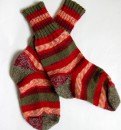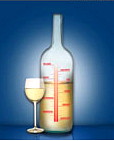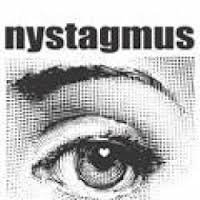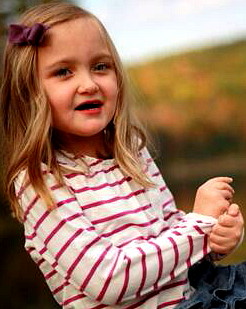How does Socks for Life help premature babies? Will you join in?
 Preterm infants represent Europe's largest child patient group. About half a million babies are born prematurely in Europe every year – one baby in ten. And numbers continue to grow: the available data provides evidence of increasing prevalence in the last ten years. However, the risks and challenges of preterm birth for our babies and their families are still overlooked by governments in the provision of high quality healthcare and support; we should be investing more in research, preventive care, diagnostics and treatment and effective follow-up and continuing care to protect and promote the health of the smallest members of our societies.
Preterm infants represent Europe's largest child patient group. About half a million babies are born prematurely in Europe every year – one baby in ten. And numbers continue to grow: the available data provides evidence of increasing prevalence in the last ten years. However, the risks and challenges of preterm birth for our babies and their families are still overlooked by governments in the provision of high quality healthcare and support; we should be investing more in research, preventive care, diagnostics and treatment and effective follow-up and continuing care to protect and promote the health of the smallest members of our societies.
November 17 2013 is World Prematurity Day when parents, healthcare professionals and such strong partners as WHO or UNICEF show how widespread preterm birth is and that our governments urgently need to tackle the challenges, for the welfare of the individual family but also for our society. Last year, over 60 countries participated with activities and events. Altogether, we reached an impressive 1.4 billion people around the world with this day.
Parents' organisations across Europe warmly invite you to take action though our common initiative SOCKS FOR LIFE. Through different art activities and the publication thereof, SOCKS FOR LIFE aims at raising awareness, informing the public and also reaching out to local, national and European policy makers and key-opinion leaders.
More information here: http://www.enemenemini.eu/
and here: http://www.socksforlife.org/


 There are many reasons why young people start smoking, drinking or taking drugs, often out of curiosity, rebellion, or influence from peers. However feeling unhappy, stressed or trying to cope with problems in their lives can keep these habits alive. Educating young people about how the feelings of relief or enjoyment that drugs, alcohol and smoking can provide is only temporary is vital. Any underlying problems don’t disappear and may indeed worsen, and dependence on these substances itself creates new problems.
There are many reasons why young people start smoking, drinking or taking drugs, often out of curiosity, rebellion, or influence from peers. However feeling unhappy, stressed or trying to cope with problems in their lives can keep these habits alive. Educating young people about how the feelings of relief or enjoyment that drugs, alcohol and smoking can provide is only temporary is vital. Any underlying problems don’t disappear and may indeed worsen, and dependence on these substances itself creates new problems. Nystagmus is characterised by an involuntary movement of the eyes, which often seriously reduces vision. In the UK many people with nystagmus can register as sight impaired; few can drive a car; most encounter some difficulties in everyday life - both practical and social - and some lose out on education and employment opportunities. Early Onset Nystagmus is far more than just poor distance vision. Nystagmus is a dynamic condition, so apart from poor visual acuity (distance vision), it also affects our vision in terms of…
Nystagmus is characterised by an involuntary movement of the eyes, which often seriously reduces vision. In the UK many people with nystagmus can register as sight impaired; few can drive a car; most encounter some difficulties in everyday life - both practical and social - and some lose out on education and employment opportunities. Early Onset Nystagmus is far more than just poor distance vision. Nystagmus is a dynamic condition, so apart from poor visual acuity (distance vision), it also affects our vision in terms of…  I was born Feburary 2007 in California. My first year was a dream. I ate and slept so well and learned to do lots of things on my own, including saying lots of words, phrases, and animal sounds. I fed myself and loved to read books. It took me a little longer to crawl, cruise and walk, but by 26 months I was running. Around the same time I started walking, my mom and dad noticed a few words disappearing. I was enrolled in an Early Start program and Teacher Jan suggested I get tested for Rett syndrome. So I did, and our lives were never the same.
I was born Feburary 2007 in California. My first year was a dream. I ate and slept so well and learned to do lots of things on my own, including saying lots of words, phrases, and animal sounds. I fed myself and loved to read books. It took me a little longer to crawl, cruise and walk, but by 26 months I was running. Around the same time I started walking, my mom and dad noticed a few words disappearing. I was enrolled in an Early Start program and Teacher Jan suggested I get tested for Rett syndrome. So I did, and our lives were never the same.